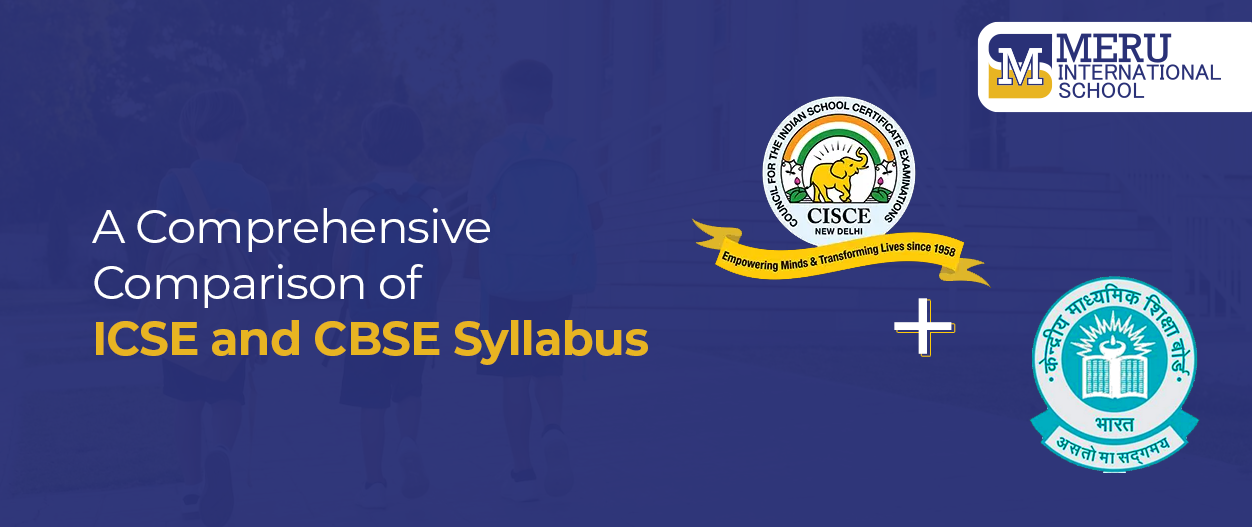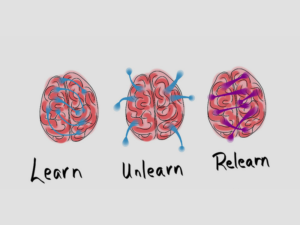In today’s evolving educational landscape, one of the most frequent dilemmas parents and students face in India is choosing between the ICSE vs CBSE syllabus. Understanding the difference between CBSE and ICSE can significantly influence one’s academic trajectory. Let us see what are the inherent differences between them, allowing you to make an informed choice.
ICSE & CBSE: What Are They?
The ICSE (Indian Certificate of Secondary Education) is an offshoot of the Cambridge School Certificate system during the British Empire’s reign. Governed by the Council for the Indian School Certificate Examinations, its curriculum stands out for its depth and richness. ICSE’s comprehensive approach places equal emphasis on language, arts, and science, ensuring a holistic academic experience. The board values both practical knowledge and theoretical expertise, fostering an environment where students don’t just memorise but truly understand.
Conversely, the CBSE (Central Board of Secondary Education), an autonomous body under the Union Government of India, is one of the oldest and most widely accepted boards in the country. CBSE’s syllabus is designed with a nationalistic spirit, reflecting the centralised Indian educational ethos. The curriculum is more streamlined, focusing on moulding students for national entrance examinations like JEE and NEET. This approach is beneficial for those who wish to pursue higher education in Indian universities. With its pan-Indian presence, CBSE also offers a uniform syllabus, making it easier for transfer students who frequently relocate within the country.
What is the Difference Between the Curriculums?
The ICSE syllabus, with its emphasis on depth, is akin to an expansive tapestry of knowledge. Not only does it cover core subjects, but it also places significant weight on subjects often viewed as ancillary in other curriculums. Literature, for instance, is not just about reading texts; students are encouraged to delve into intricate analyses, enabling them to appreciate various literary techniques and nuances. Similarly, for subjects like Science and Mathematics, ICSE does not just touch upon concepts; it explores them, ensuring students grasp both the ‘what’ and the ‘why’. Furthermore, environmental studies, art, and languages are integral to the curriculum, ensuring that students receive a well-rounded education.
The CBSE syllabus, by contrast, is like a laser-focused beam. While it does impart foundational knowledge across all subjects, its chief aim is to optimise preparation for national entrance examinations. The content is strategic, highlighting key areas and principles most relevant to such exams. This concentrated approach means that while topics are taught, they might not always be as elaborately explored as in the ICSE curriculum. Instead, CBSE places higher emphasis on application-based learning, equipping students with problem-solving skills, especially in subjects like Mathematics and Science. Given this emphasis, students who study under CBSE often find themselves better positioned to tackle competitive examinations after Grade 12, as the board’s syllabus aligns well with the needs of these exams.
In essence, while ICSE offers breadth and depth, shaping analytical thinkers with a passion for detail, CBSE is more streamlined and pragmatic, catering to the aspirations of students keen on cracking national competitive examinations.
Evaluation Methods
The ICSE board’s evaluation system is a blend of consistency and comprehensive understanding. There is a dual focus here. Firstly, it keeps students on their toes throughout the academic year. Continuous internal assessments mean students are constantly being evaluated on projects, class activities, assignments, and practical work, ensuring that they remain engaged and invested in their studies without any significant lulls. This system promotes not just rote memory but also the development of a deep-rooted understanding of subjects. These continuous evaluations often encapsulate real-world applications, fostering analytical skills and an applied knowledge base. Moreover, by balancing internal assessments with external exams, ICSE ensures that students are equipped to face both long-form examinations and continuous assessment formats that they might encounter in higher education and professional environments.
Contrastingly, the CBSE board sticks to a more traditional approach that many might find reminiscent of the typical Indian educational system. The main weightage is given to the terminal examinations – those held at the end of each term. Here, students are evaluated on the entirety of the syllabus covered in that term, often in a written format. These exams test the students’ retention, understanding, and application of the knowledge garnered over the term. While this system might seem high-pressure due to its emphasis on end-term performance, it has its merits. It prepares students for the rigours of national entrance exams which follow a similar pattern. Additionally, some schools under the CBSE umbrella do incorporate periodic tests to ensure continuous learning, but their weightage in the final mark tally is substantially less than the terminal exams.
To encapsulate, ICSE’s evaluation offers a more distributed assessment system that values both consistency and holistic understanding. In contrast, CBSE is more exam-centric, prioritising depth and retention of knowledge, aptly preparing students for future competitive tests.
Subject Selection
The ICSE board offers a degree of flexibility when it comes to selecting subjects in the later academic years. This approach ensures students have a wider choice, accommodating diverse interests.
In comparison, CBSE offers a more structured approach to subject selection. The syllabus is streamlined, primarily focusing on core subjects, making it more oriented for students aspiring for specific professional streams.
Recognition and Presence
CBSE, due to its association with the Union Government, enjoys a widespread presence nationally. For instance, if you are searching for schools in Hyderabad, finding the best CBSE school in Hyderabad might be simpler due to its extensive network.
While ICSE might not match CBSE in terms of sheer numbers, it is worth noting that ICSE’s recognition, especially in foreign universities, is commendable. Its comprehensive curriculum is often acknowledged in international educational spaces.
Which Board Should You Choose?
When confronted with the choice between ICSE and CBSE, it is essential to view it not as a contest of superiority but as a journey of self-awareness and strategic alignment. Both boards, in their own right, offer solid academic foundations. However, understanding the nuances can lead to a more informed decision.
The CBSE curriculum, given its national prominence and strategic alignment with competitive exams, often emerges as the go-to choice for students with ambitions to crack national-level entrance tests. With its streamlined content, application-based approach, and more structured examination pattern, CBSE is particularly geared towards helping students succeed in examinations like JEE, NEET, and others. Moreover, with CBSE schools enjoying a vast network across the country, students often benefit from a uniform syllabus and teaching methodology, regardless of their geographical location. This becomes an advantage for families that relocate frequently within India.
ICSE, on the other hand, boasts of a detailed curriculum that often resonates with students seeking a deeper and more comprehensive academic experience. It is particularly favoured by those who might be eyeing international opportunities, given its wider recognition in foreign educational spaces.
However, in this intricate maze of educational decisions, where one’s choice can shape the academic and professional trajectory, it’s reassuring to have a guiding hand. That is where Meru steps in. With our rich experience and nuanced understanding of both curricula, Meru can offer personalised guidance, ensuring you choose a path that resonates with your individual aspirations. While both boards have their merits, Meru’s choice of CBSE stems from its adaptability to India’s evolving educational landscape and its pronounced advantage for those aiming at national competitive exams.
While the broader and internationally recognised ICSE curriculum has its appeal, CBSE, with its structured approach and clear alignment with national academic goals, often holds a slight edge for many. With Meru by your side, you would be essentially joining the best CBSE school in Hyderabad.






